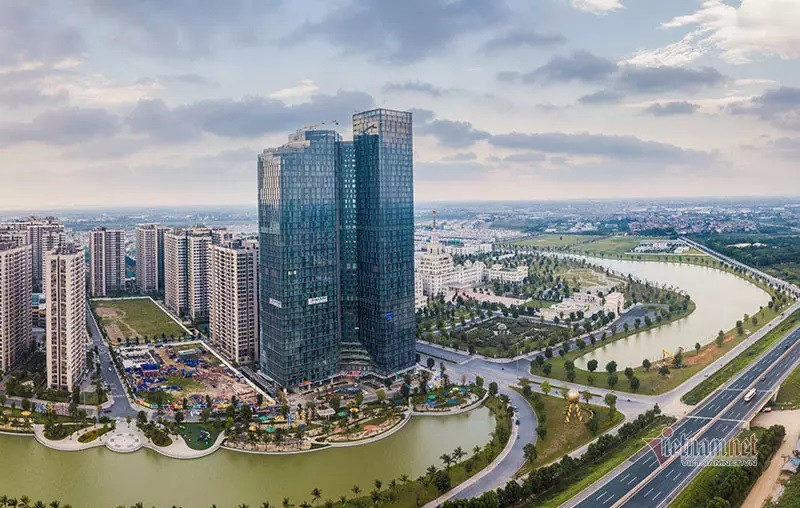
According to the Ministry of Construction, the real estate business has received more than US$31 billion of registered foreign investment capital. In 2021, the disbursed capital was $2.6 billion, down $1.6 billion compared to 2020.
In terms of macro factors, Vietnam's economy is growing steadily and sustainably compared to other countries in the region. According to FocusEconomics, Vietnam will lead in economic growth in 2022 and also in 2023.
According to the Ministry of Planning and Investment, in early 2022, the Government officially approved the largest socio-economic recovery and development program ever, worth nearly VMD350 trillion. Of which, more than VND100 trillion is invested in infrastructure development.
This acts as a “spill-out” driving force, providing many growth opportunities to satellite areas. From there, FDI enterprises can expand their investment scale, instead of just concentrating in big centers like Hanoi and Ho Chi Minh City.
In addition, Vietnam has a young and abundant labor force and competitive labor costs compared to other countries in the region. The high urbanization rate also creates favorable conditions for socio-economic development, opening up the potential for the development of many new urban projects.
Besides favorable macro factors, the timely support from the State plays a prerequisite role in helping strengthen the confidence of FDI enterprises in Vietnam.
Along with economic policies, the universal vaccination campaign was also deployed quickly. Thanks to accelerating the speed and scale of vaccination, Vietnam has become one of the six countries with the highest vaccine coverage rate in the world. This is the basis for foreign businesses to put their faith in the recovery of the Vietnamese market.
Limitations
In return for the opportunities and potential offered by Vietnam, merger and acquisition activities in the country still have certain limitations. This makes FDI enterprises more cautious, somewhat inhibiting the development of the M&A market.
Experts said that Vietnam’s M&A market has many advantages compared to other countries in the region, but still has potential challenges for foreign investors. M&A transactions are a complex commodity. Therefore, the parties involved need to carefully study as well as make detailed plans to aim for long-term value in the future.
In the context that businesses with investment needs are allowed to move freely, this is a golden time for the market to keep trade moving into Vietnam.
To increase its attractiveness to foreign investors, the market needs to maximize its potential and overcome outstanding limitations. The legal system on land is still relatively complicated. This causes bottlenecks and waste that have not yet been solved. Despite the government's institutional reform over the years, these shortcomings will be a factor hindering the development of M&A deals.
In terms of transaction structure, most foreign-invested enterprises want to deploy a joint venture structure. Under this model, they hold the main decision-making power and Vietnamese investors provide legal support for the project. However, due to the difference in business practices as well as the legal system, the negotiation between the two parties becomes time consuming, and sometimes leads to conflicts in the post-M&A stage.
Because the M&A market is a relatively new concept, many Vietnamese businesses, especially small and medium enterprises, have not prepared well for this process. For enterprises that own large projects, they have not yet specifically planned for a reasonable divergence right from the project planning stage, leading to many difficulties in mobilizing investment capital or transferring capital.
Buyers and sellers are taking different pricing approaches, creating differences in the expected price of the project. This leads to difficulties in negotiating to find a suitable price between the two parties.
Duy Anh